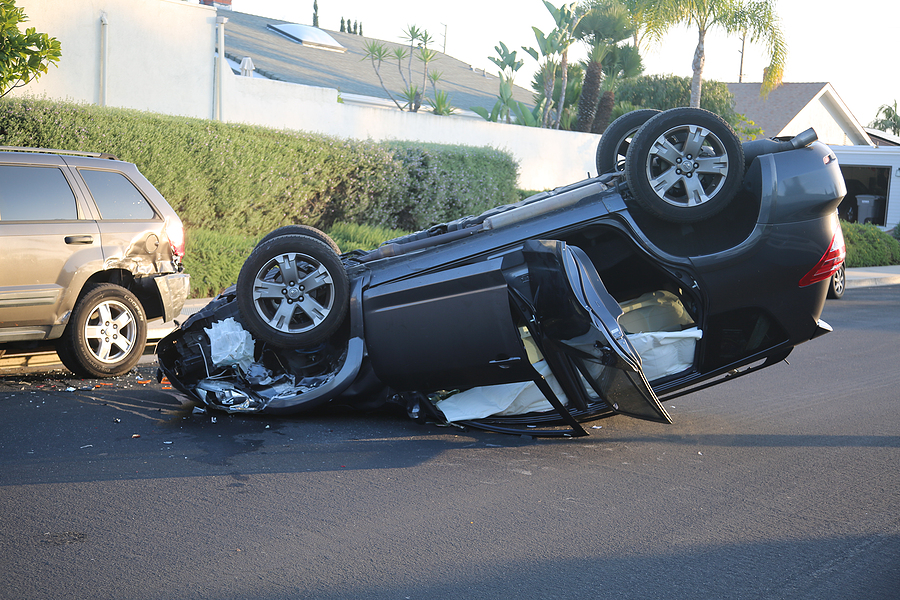What is the Difference Between Self-Defense and Assault in Colorado?
There is a thin line between assault and self-defense in a physical confrontation. However, the distinction is critical in assault cases because the punishment, even for a third-degree misdemeanor assault, can lead to jail time. If you’re facing assault charges, but believe you acted in self-defense, consult criminal defense lawyers in Colorado Springs for legal counsel.
What is Assault?
Assault is a crime that involves putting the victim in reasonable offensive apprehension or harmful contact. It also entails threatening to cause physical harm, even if you don’t physically hit or harm the victim.
If you’re facing assault charges in Colorado, you could be charged with one of these three levels:
- 1st Degree Assault: The charges entail causing severe bodily injury using a deadly weapon
- 2nd Degree assault: The offense is a felony and entails using a deadly weapon or causing serious bodily injury. A punch or kick could be considered assault in some cases.
- 3rd Degree Assault: The offense is a misdemeanor and is the reckless or intentional infliction of bodily injury to someone. The standard for physical injury is low, and the definition may include causing momentary pain to the victim.
For 1st and 2nd-degree assault charges, the prosecution must prove the intent to cause bodily injury. Your assault defense attorneys in Colorado Springs can use self-defense as one of the possible strategies to help you beat the charges.
What is Self-Defense?
Self-defense is using reasonable force to protect yourself or others from harm or danger. The critical element of self-defense is that it’s a reactive action or affirmative defense taken in response to an attack or threat, unlike assault, which is a proactive action.
An affirmative defense limits, excuses, or avoids a defendant’s criminal culpability. As a defendant, you must affirmatively provide sufficient evidence supporting the defense. Under Colorado Revised Statutes (CRS) §§ 18-1-101 to 18-26-102, the following affirmative defenses can exempt you from criminal liability:
- Justification defense: You admit that you committed the act with the requisite intent but also assert that the action should not be criminal, given the circumstances under which it occurred
- Excuse defense: The defense claims that although you committed the act with criminal intent, you should not be held responsible for the behavior
Working with skilled criminal defense attorneys in Colorado Springs can enhance your chances of having your self-defense act categorized correctly. That would be important in shielding you from penalties for assault if you acted in self-defense.
When Can I Use Self-Defense in Colorado?
Under Colorado self-defense laws, you can use physical force to defend yourself and others under two conditions:
- You reasonably believe there was imminent harm or danger against you
- You only use the degree of force appropriate for the situation, which may entail deadly force under some circumstances
Your assault defense lawyers in Colorado Springs can evaluate your case to see if it meets the conditions for self-defense. They can use arguments based on these principles to show why you acted in self-defense and not assault as your charges imply.
Perceived Threat as an Element of Self-Defense
Everyone has a right to protect themselves and their loved ones from actual or threatened bodily harm. For example, if a masked man is holding a gun and threatening to shoot at you or your loved one, you can use reasonable force to defend yourself against the physical danger presented against you.
Property owners can also use self-defense to protect their property from destruction or theft. In that case, they may only use the necessary force to stop the aggressor from being a threat to the property. Whether protecting yourself, a loved one, or your property, there must be a perceived threat with the potential for physical harm.
Continued Attack
Whether or not an attack can be considered self-defense also depends on the force used. For example, if you took away the masked man’s gun in the scenario above and continued to beat and chase him, you may be found to have used too much force for the situation.
On the other hand, taking away the gun forcefully and allowing the assailant to run away can be considered reasonable force under self-defense. Using too much force while an assailant discontinued their attack is considered a wrong move. You cannot use deadly force on an attacker who isn’t threatening your person.
Can Self-Defense Turn into Assault?
Self-defense can quickly escalate into aggravated assault if you continue attacking someone even after neutralizing the threat. Besides, self-defense is unavailable as a defense if:
- You were the initial aggressor, except when you retreated from the encounter and communicated your intention, but the attacker continued with the attack.
- You provoked the attacker into using physical force.
- The physical force used is the product of a combat by agreement and not otherwise lawful.
It’s not uncommon for people to use self-defense in Colorado, but it can be challenging to determine how much force to use, given the circumstances. If you’ve been accused of assault after you tried defending yourself from a severe threat of harm, consult skilled Colorado Springs assault defense attorneys to protect your rights.
A Skilled Criminal Defense Lawyer Helping You Build a Solid Defense Strategy
If you’re facing assault charges, you can argue that you acted in self-defense to protect yourself, others, or your property against an imminent threat. However, you must prove you were in danger of a real or perceived threat and that you used reasonable force in defending yourself. Enlist the help of Colorado Springs assault defense attorneys to enhance your chances of a favorable outcome.
The Lux Law Firm is a criminal defense law firm that hosts aggressive attorneys who can help you in your case. We can evaluate your case circumstances and provide legal counsel on using self-defense as a strategy in your assault charges to protect you from stiff penalties. Call us at 719-451-7469 to schedule a FREE strategy session.








